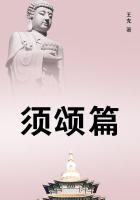If the possibility of ****** such preternatural exertions could be furnished to nations, and reserved at the same time for an extraordinary necessity, no doubt a great service would be done to human society, which is shaken to its foundation every time that one of its members is overthrown. But each mean of defence becomes in its turn a mean of attack. The invention of artillery, happy for society if it could have been employed only in the defence of towns, has served to overthrow them: the invention of standing armies has opposed discipline to discipline, and talent to talent; the invention of conscriptions has opposed all the youth of one nation to all the youth of another; the invention of landsthurms and levees en masse, has made even women and old men descend to the field of battle to assist regular troops; the invention of loans has attacked and defended the present generation, with all the hope and all the labour of posterity. The strength of nations, though becoming still more formidable, has continued still in same proportion.
The state, in danger, has not found deliverance more easily. but humanity herself has been sacrificed, and, amid those gigantic combats, it is she that must perish.
As, after those destructive expenses rendered possible by loans, there remains an apparent wealth, which has been named the public funds, and which figures as an immense capital, the different portions of which constitute the fortunes of opulent individuals, some have believed, or affected to believe, that this dissipation of national capital was not so great an evil, but rather a circulation, which caused wealth to spring up again under another shape; and that mysterious advantages existed for great states in this immaterial opulence, which was seen to pass from hand to hand on the market of the public stocks.
No very powerful logic was needed, to persuade ministers of the advantages arising from dissipation; stock-jobbers, of the national profit attached to their commerce; state creditors, of the importance of their rank in society; capitalists, eager to lend, of the service they did to the public, by taking from it an interest superior to that of trade. Thus all appeared amply satisfied with regard to the unintelligible doctrine by which it was pretended to demonstrate the advantage of public funds.
In place of following this subtle reasoning, we shall endeavour to show that stocks are nothing else but the imaginary capital, which represents that portion of the annual revenue set apart for paying the debt. An equivalent capital has been dissipated; it is this which gives name to the loan; but it is not this which stocks represent, for this does not any where exist. New wealth, however, must spring from labour and industry.
A yearly portion of this wealth is assigned beforehand to those who have lent the wealth already destroyed; the loan will abstract this portion from its producer, to bestow it on the state creditor, according to the proportion between capital and interest usual in the country: and an imaginary capital is conceived to exist, equivalent to what would yield the annual revenue which the creditors are to receive.
As, in lending to a merchant or a landed proprietor, we acquire a right to part of the revenue which arises from the merchant's trade, or from the proprietor's land, but diminish their revenue by the precise sum which increases our own; so in lending to government we acquire a right to that part of the merchant's or proprietor's revenue, which government will seize by taxation to pay us. We are enriched only as contributors are impoverished. Private and public credit are a part of individual, but not of national wealth; for nothing is wealth but what gives a revenue, and credit gives none to the nation. If all public and private debts were abolished in a day, there would be a frightful overturning of property. one family would be ruined for the profit of another, but the nation would neither be richer nor poorer, and the one party would have gained what the other had lost. This has not, however, in any case, been the result of public bankruptcies; because governments, whilst suppressing their debts, have maintained the taxation which belonged to their creditors; or rather they have broken their faith to the latter, and have continued notwithstanding to encroach on the property of contributors.
A government which borrows, after leaving dissipated its capital, makes posterity perpetually debtor in the clearest part of the profit arising from its work. An overwhelming burden is cast upon it, to bow down, one generation after another. Public calamities may occur, trade may take a new direction, rivals may supplant us. The reproduction which is sold beforehand may never reappear; yet not withstanding we are loaded with a debt above our strength, with a debt of hypothecating our future labour, which we shall not perhaps be able to accomplish.
The necessity of paying this debt begets oppressive imposts of one kind or another; all become equally fatal when too much multiplied. They overwhelm industry, and destroy that reproduction which is already sold beforehand. The more that it has paid already, the less capable does the nation become of paying farther. One part of the revenue was to spring from agriculture - but taxation has ruined agriculture; another proceeded from manufactures, but taxation has closed up those establishments; another yet from trade, but taxation has banished trade. The suffering continues to increase, all the resources to diminish. The moment arrives at last, when a frightful bankruptcy becomes inevitable. And doubts are entertained whether it should not even be hastened, that the salvation of the state may yet be attempted. There remains no chance to shield the whole subjects of the state from ruin; but if the creditors are allowed to perish first, perhaps the debtors will escape; if the debtors perish from penury, with them will be extinguished the last hope of the creditors, who must soon perish in their turn.















